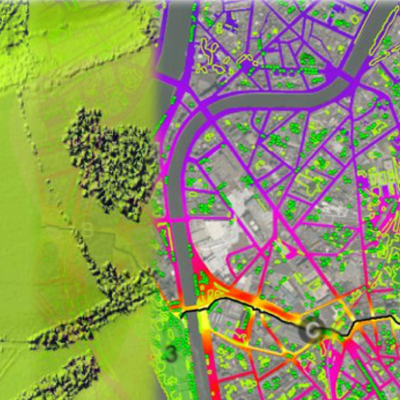The first report from an expert collaboration identifying ten key emerging environmental issues for Europe has been developed with academic input from Cranfield University. The FORENV project is a foresight system which takes a short, medium and long-term look at emerging topics that EU policy-makers need to consider.
An alliance of experts led by Collingwood Environmental Planning in partnership with Cranfield University, Milieu, the German Federal Environment Agency and Vision Communication (Spain) run FORENV on an annual cycle. The first report from the 2018-2019 cycle highlights new social, business and technological innovations and their impacts on the environment and human health.
Dr Kenisha Garnett, Lecturer in Decision Science (Strategic Foresight) at Cranfield University, said: “From youth activism to cities as labs; from migration to populism – this report has a huge breadth of information about diverse yet interconnected topics. As well as risks, there are many opportunities for European policy makers to consider.”
Technology, populism and plant-based diets – the ten priority emerging issues:
1. Environment Policy and Social Cohesion: addressing inequalities in the transition towards a carbon-neutral circular economy
Policies to transition to a carbon-neutral circular economy might disproportionately affect vulnerable and marginalised people. Changing systems requires investment shifts, which could lead to a decline in some sectors and regions, but a well-managed transition could bring new employment opportunities.
2. Diversification of consumption patterns: potential pull for market change towards reduced consumption
Younger consumers in advanced economies are starting to change consumption behaviours. Technology, environmental concerns and socio-economic conditions all contribute to people buying fewer and greener products, and reducing ownership of products and services. This trend could promote productivity and growth, but there could also be confusion and mistrust among consumers.
3. Environmental risks and opportunities associated with emerging and changing dietary patterns: reducing meat consumption and alternative protein sources
A growing interest in plant-based meat substitutes and insect-based food products as alternative sources of protein is expected to continue. New technological approaches to producing animal and vegetable proteins are emerging, which could bring increased productivity and new market opportunities.
4. Digitalisation as a driver for the ecological transition
Digital innovation is creating environmental benefits associated with real-time data and monitoring that improve efficiencies in energy and waste management. However, the costs are high for small businesses, there are concerns around data privacy, and a focus on smart cities could widen the urban-rural divide.
5. An evolution in citizen activism: in particular by the younger generation towards environmental justice and sustainability transitions.
Social media has driven new and unexpected forms of collective activism in particular by young people. Although this could challenge the authority of traditional institutions, it could also bring opportunities to discuss more ambitious policy action.
6. Rising populism and protectionism: undermining international co-operation on environmental issues
The rise of populist parties, post-truth politics and protectionism undermines international cooperation and agreements on environmental action. This could be a threat to Europe’s position as a global leader on environmental issues, and accelerate climate change.
7. Cities as labs for sustainability transitions: harnessing innovations through science-society partnerships
Urban living labs, where cities test experimental technology and social innovations, exist now. Although marginalised social groups are less able to participate and there is the potential for misuse of data collected, urban living labs can also bring new ideas to urban problems, and foster public-private collaboration.
8. A new narrative for nature in an urbanised, digital world: disconnecting and reconnecting people to the natural environment
Digital technologies mean people have disconnected from nature, but in the medium and long term they could reconnect human society to the natural world. There are business opportunities in rural areas to help people unplug from the digital world, and opportunities to give instant information about environmental issues.
9. Intensification of conflicts about natural resources and other environmental causes of migration
Increased global demand for resources, together with environmental and climate change, may cause or intensify local and cross-border conflicts. These pressures are driving internal and international migration. It requires an immediate response and the EU’s leadership on environment, climate and resource management could help solve conflicts and reduce migration.
10. New forms and approaches to the management of knowledge, education and skills required for sustainability transitions
Skills development and new knowledge is vital to sustainability changes. The disruption to traditional learning could bring about new ways of thinking, and encourage young people to play an active role in creating change.
The topics covered link to Cranfield University’s short course in Strategic Foresight, and parts of the Master’s degree in Environmental Management for Business and Future Food Sustainability.




